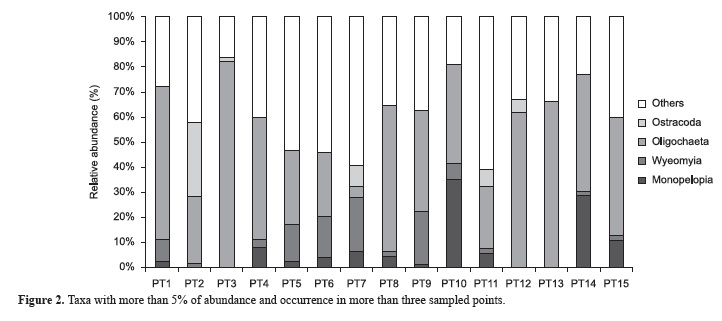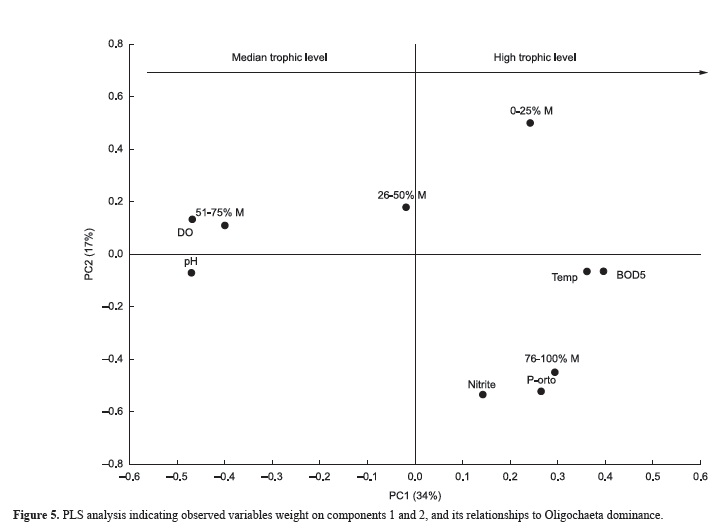Environmental differences occur between lentic and lotic communities' establishment, especially because of water time residence. Here we used a combination of field measurements and statistical analysis to evaluate the influent factors on the aquatic macroinvertebrates' composition and structure in 15 anthropogenic lakes from Alto Iguaçu's region. Macroinvertebrates were sampled from the marginal vegetation (with or without macrophytes) and sediment. Chemical parameters ranged among the anthropogenic lakes, mainly those which are connected to the Iguaçu River, beyond the presence or absence of macrophytes, interfering on the community's structure. Lake's morphometric data were measured in each lake and its relation to community was tested. The community structure was not related to the margin development index (Ds), macrophytes and altitude. Higher equitability was associated to the macrophytes presence in more than 30% of water surface and also where the riparian vegetation was more complex. Chironomids and oligochaetes densities were associated to lakes with the water surface completely covered by macrophytes and complex riparian vegetation. We observed a close association between productivity (phosphorous and nitrogen) and the community equitability (R = 0.3; p < 0.05) and Oligochaeta dominance (R = 0.32; p < 0.05), and not to Ostracoda's (R = 0.33; p > 0.05) and Chironomidae's (R = 0.34; p > 0.05) dominances, although we had not weighty difference among analyzed biological indexes. The obtained values from the BMWP' and EPT indexes resulted in acceptable, doubtful or critical water quality, what corroborates with the macroinvertebrate's structure of the composition and with the environmental variables observed in field.
freshwater invertebrates; Iguaçu River; productivity; macrophytes; tropical lakes















